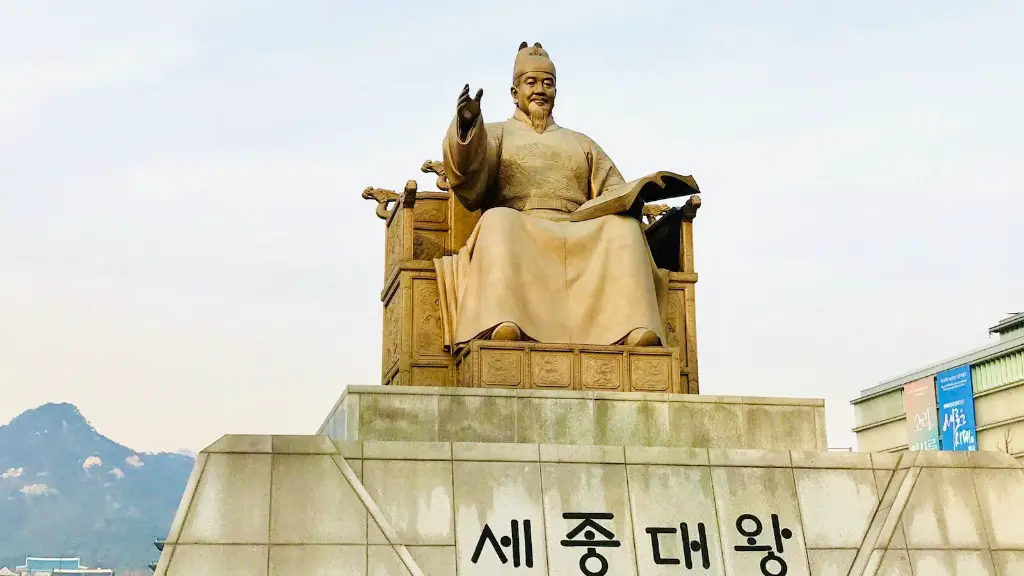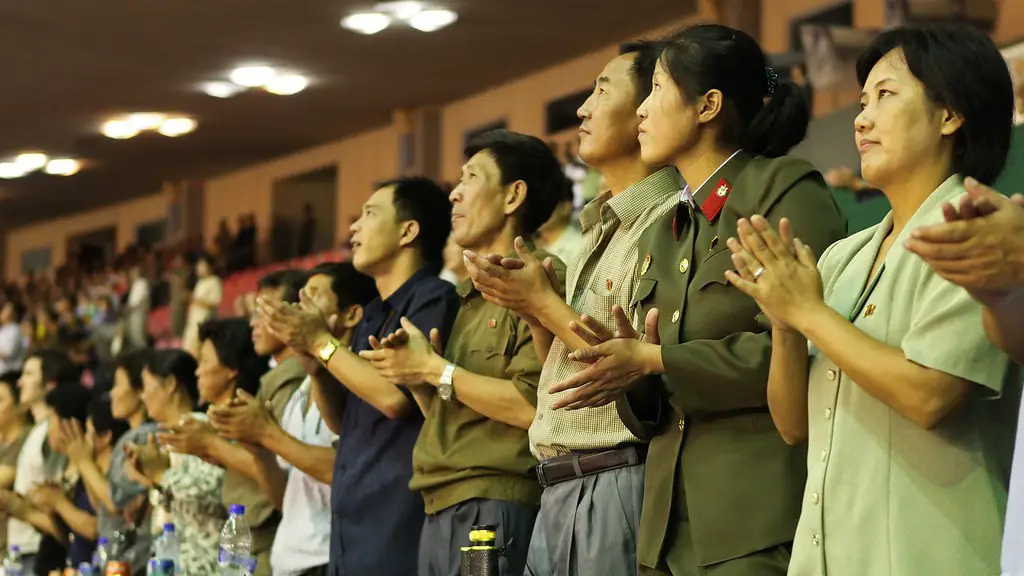Historical Overview
The Korean Peninsula is located in East Asia, comprising two distinct countries, North and South Korea. During the Korean War (1950-53), North Korea was aided by the Soviet Union and China, while South Korea was supported by the United Nations and a coalition of sixteen countries, including the United States. The conflict ended in a stalemate, and despite numerous attempts, the two countries remain technically at war to this day.
Before the split, North and South Korea shared a similar language, culture and ethnic background. Along with geopolitical interests, this factor was the driving force behind the support of different states in the Korean War. The Soviet Union and China cited the ideological differences as justification for their support of North Korea, although their main objective was to extend their global influence in the region.
Although North Korea is officially known by its self-proclaimed title as the Democratic People’s Republic of Korea, it has actually been an authoritarian regime since 1948. The government is guided by the ideology of ‘Juche’ which encourages complete self-reliance and independence from international influences. This ideology has driven North Korea in the development of nuclear weapons and other military technologies.
Economic and Military Power
The United Nations and the United States are the most prominent supporters of South Korea. This is partially due to the fact that South Korea is a liberal democracy, with a market economy, and one of the Four Asian Tigers. South Korea has maintained strong diplomatic ties with the majority of first world nations and is a key ally of the United States in the East Asian region.
South Korea places great emphasis on its military capabilities, with a defence budget of over $40B USD, which is roughly equivalent to North Korea’s GDP. South Korea also has an extensive military alliance which includes the United States, Australia, Japan and Canada, reaffirming the commitment of sixteen countries to defend South Korea in the event of any hostile action from North Korea.
South Korea has been a key partner in the advancement of economic and technological advancement in East Asia. It is a member of the Organisation for Economic Co-operation and Development (OECD) and boasts a highly educated workforce capable of competing in the global market. South Korea is also one of the few countries to have successfully implemented a mixed economy and its success story has been adopted by many East Asian countries.
International Perception
It is generally accepted that North Korea is considered to be unpredictable and hostile by the international community. It has long been associated with extreme poverty, famine, and human rights abuses against its citizens. North Korea is also known to often engage in provocative behaviour, including the testing of nuclear weapons, which has caused further international condemnation.
Despite these issues, North Korea does receive some support from abroad, mainly from China and Russia. Both countries use their influence in the region to raise pressure against South Korea in order to bolster North Korea’s position in the region. China is often seen as the most influential diplomatic supporter for North Korea, providing economic assistance and political protection whenever it is necessary. Russia, on the other hand, has always made it clear that despite its support for North Korea, it does not condone its aggressive stance towards its neighbours.
North Korea also receives some support through international organisations such as the Non-Aligned Movement and the United Nations. This support is largely in the form of humanitarian aid, which is seen as a way to alleviate the suffering of North Korean citizens and to reduce the burden imposed by the international sanctions against the nation.
Conclusion
It is evident that North and South Korea have had different supporters since the Korean War, with North Korea receiving mainly ideological and economic support from the Soviet Union, China and international organisations, while South Korea relies mainly on established alliances with the United States and other first world countries. Despite this, the two countries remain divided and the conflict has gone unresolved for decades.


